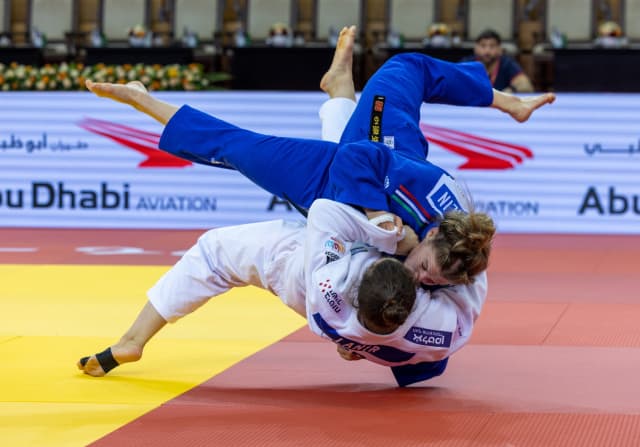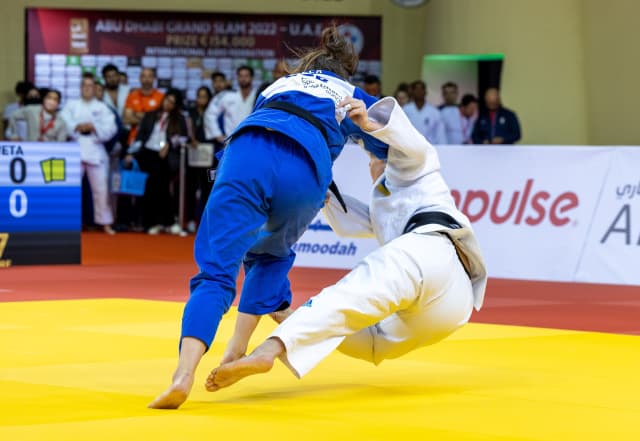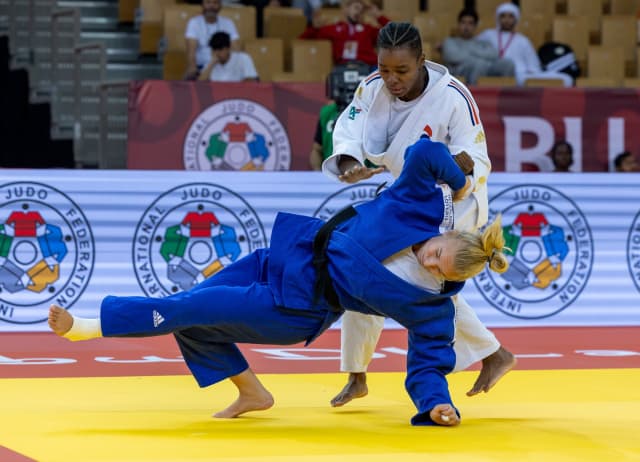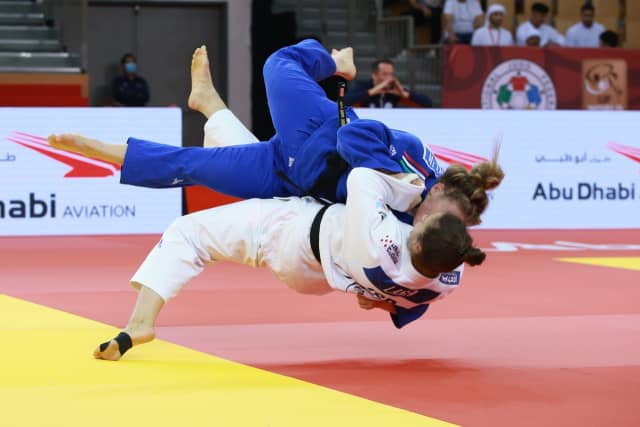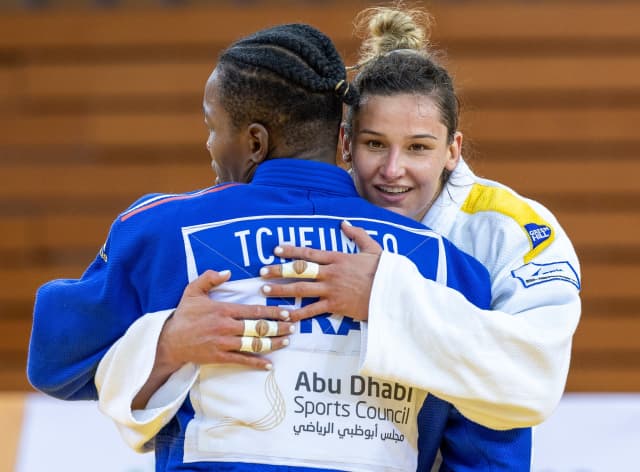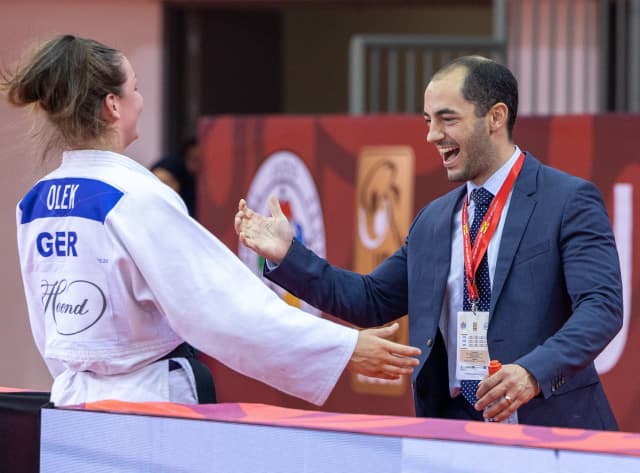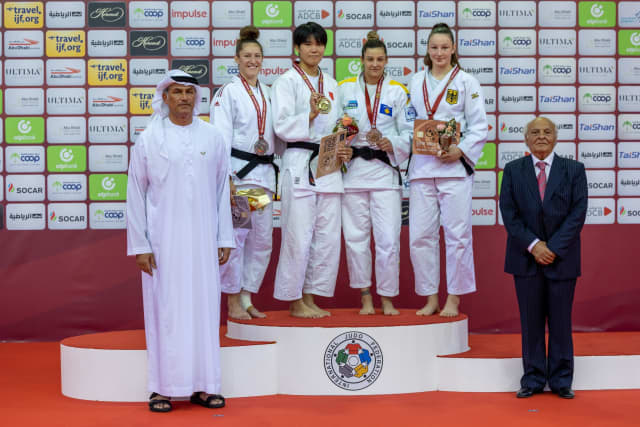The first is called Yelysaveta Lytvynenko, eighteen springs, with legs longer than a day without bread, a melancholy look and a determination that many will never reach. European champion, a medallist in Tashkent, the Ukrainian has come to say that this closed group formed by Wagner, Hamada, Malonga and Aguiar, is not to her liking because she also wants to participate. Lytvynenko embodies the clash between generations and this is happening in Abu Dhabi.
The second woman is Audrey Tcheumeo, French, a member of the generation of veterans but absent in Tashkent due to the presence of Malonga. Now that the latter doesn't seem to be back to her best form, many are wondering if Tcheumeo should be the first choice and Abu Dhabi is an excellent opportunity to validate that hypothesis. With these premises and except for an unexpected accident, they planned to face each other in the semi-finals. However, the accident occurred, one which happens to us for anticipating. Lytvynenko lost her first fight against the German Anna Monta Olek and our face was a poem. She passed in front of Tcheumeo, who was fighting right after and life was not complicated against the Slovenian Metka Lobnik. It seemed that the Frenchwoman had done the most difficult part and forgot that the British Natalie Powell was her rival in the semi-finals. The Frenchwoman did not fight at her best and lost that match, as well as an excellent opportunity to claim more attention.
Now it's time to talk about the top seed, who is younger than the veterans but older than Lytvynenko. Inbar Lanir is halfway between one and the other, 22 years old and she is completing an excellent season, but she does not quite get on the train of the veterans when the big tournaments arrive. It is normal because she is in full progress and Abu Dhabi was an excellent opportunity to reclaim the leadership of the new batch of judoka.
The problem with Lanir is that she comes out in a rush, with a lot of force but she deflates after two minutes. China's Zhenzhao Ma knows this and she prepared for the fight that way, withstanding the Israeli's lightning strikes until the gas ran out. Ma then brought out her best judo and pinned Lanir. That's what coaches are for, to analyse the weaknesses of opponents and that's why judoka have to listen. Ma listened, executed and fought for the gold.
All our predictions therefore ended up in the rubbish bin because we had not bet on Ma, nor had we done so on Powell. The British did take advantage of Lytvynenko's stumble, beat the German Olek and got into the final.
There is a detail that we have not told you, and it is not small, but we are telling you now, just before the final begins, because it is not silly. Ma won silver in Tashkent, which means that this is her second final in a row, that she is fit. Powell was as usual, neither better nor worse, with a lot of character and a ton of experience. As the Chinese woman is very tall, when she stretches out her arm it is difficult to go looking for her. But she is not more powerful than the British, rather the opposite and they both knew it. In this case it would not be a matter of physicality but of technique and strength, and Ma scored a tremendous ippon using her size, speed and refined technique. Silver in Tashkent, gold in Abu Dhabi, Ma's journey is proving very profitable.
For Kosovar Loriana Kuka, the price of bronze was defeating Tcheumeo. It was not a beautiful fight and Tcheumeo played with fire because she was physically superior, but she preferred to provoke Kuka's third shido. Her mistake was that because she also had two shido and there was so much waiting, so much indecision, or the decision not to attack, whatever it was, cost her the bronze.
You know Lanir, you know she's going to come out like a hurricane. The German was also aware of what was coming her way. That was the key to the fight. The final result depended on the forcefulness of the first and the resistance of the second. Olek held up very well, Lanir didn't suffer a scandalous slump either, but the strength was no longer the same. The German shot the Israeli twice, but Lanir avoided the penalty. Instead, it was visible that physically Olek was a bit cooler. And what we had been announcing happened, a waza-ari fifteen seconds from the end when Lanir couldn't take it anymore. However, as many enjoy contradicting us, Lanir drew strength from weakness to score waza-ari five seconds later. When the physical does not give for more, it is necessary to appeal to the technique. It was a beautiful fight between two women who did not want to give up an inch of tatami. Olek won by osae-komi in what was a joint tribute to judo.

